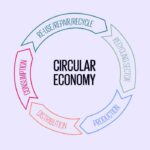In an era where the delicate balance of our planet’s ecosystems hangs in the balance, urgent calls for eco-action reverberate across the globe. The signs of environmental distress are glaring: melting ice caps, rampant deforestation, biodiversity loss, and escalating climate extremes. As stewards of Earth, it falls upon humanity to heed these warnings and take decisive action to preserve our planet for future generations.
The urgency of the situation cannot be overstated
Climate change, driven primarily by human activities such as burning fossil fuels and deforestation, poses an existential threat to life on Earth. Rising global temperatures have far-reaching consequences, including more frequent and severe natural disasters, disruptions to food and water supplies, and the displacement of millions of people.
One of the most pressing issues is the rapid loss of biodiversity
The extinction rate is currently estimated to be 1,000 times higher than the natural background rate, primarily due to habitat destruction, pollution, and the spread of invasive species. The loss of biodiversity not only diminishes the beauty and richness of our natural world but also undermines the stability of ecosystems and the services they provide, such as clean air, water, and pollination.
Fortunately, there is still hope.
Across the world, individuals, communities, governments, and businesses are stepping up to address the environmental crisis through a variety of means. Renewable energy sources like solar and wind power are gaining momentum, offering clean alternatives to fossil fuels. Conservation efforts are underway to protect critical habitats and restore degraded ecosystems. Sustainable practices in agriculture, forestry, and fisheries are being promoted to minimize environmental impact while meeting the needs of a growing global population.
However, much more needs to be done, and time is of the essence
Transitioning to a sustainable, low-carbon economy requires bold and coordinated action at all levels of society. Governments must enact and enforce policies that reduce greenhouse gas emissions, promote clean energy, and protect natural habitats. Businesses must embrace sustainability as a core principle, incorporating environmental considerations into their operations and supply chains. Individuals must make conscious choices in their daily lives, from reducing energy consumption to supporting environmentally responsible products and companies.
Education and awareness are also crucial components of the solution
By fostering a deeper understanding of the interconnectedness of all life on Earth and the impact of human activities on the environment, we can inspire a sense of stewardship and collective responsibility. Empowering people with the knowledge and tools to make informed decisions empowers them to become agents of positive change in their communities and beyond.
Ultimately, addressing the environmental crisis requires a paradigm shift in how we perceive and interact with the natural world. It demands a commitment to sustainability, equity, and justice for all beings, human and non-human alike. The stakes are high, but the rewards of taking action are immeasurable: a healthier planet, thriving ecosystems, and a brighter future for generations to come.
Conclusion
In conclusion, the planet is indeed in peril, but it is not too late to act. By heeding the urgent calls for eco-action and working together with determination and resolve, we can chart a course towards a more sustainable and resilient future for all.


